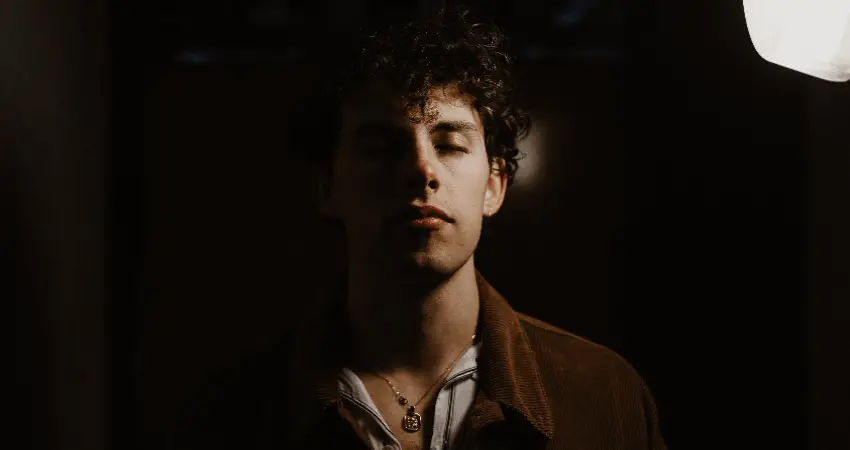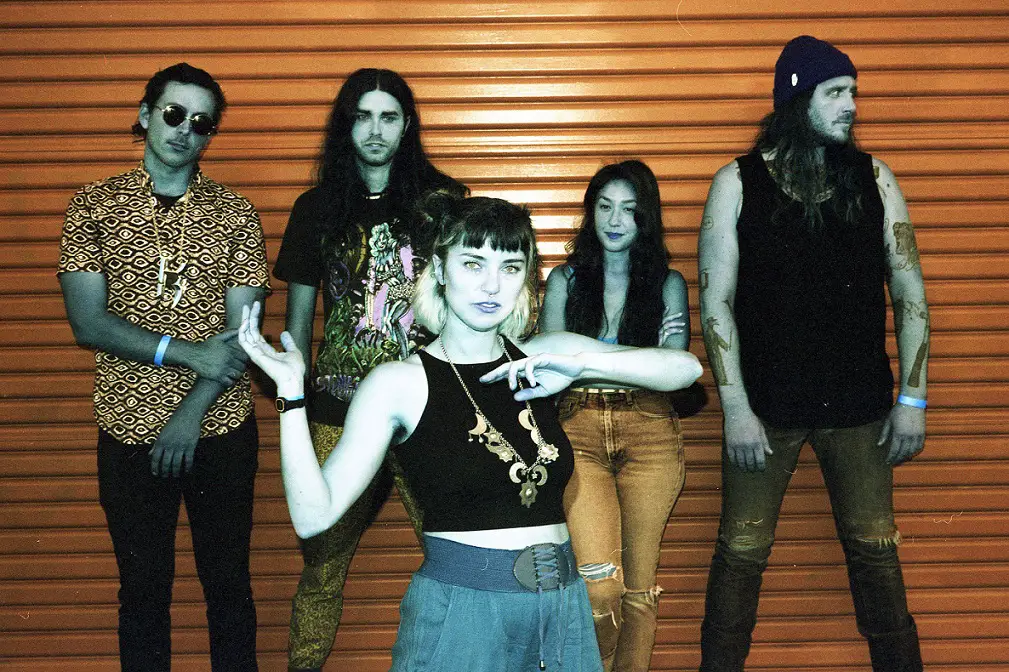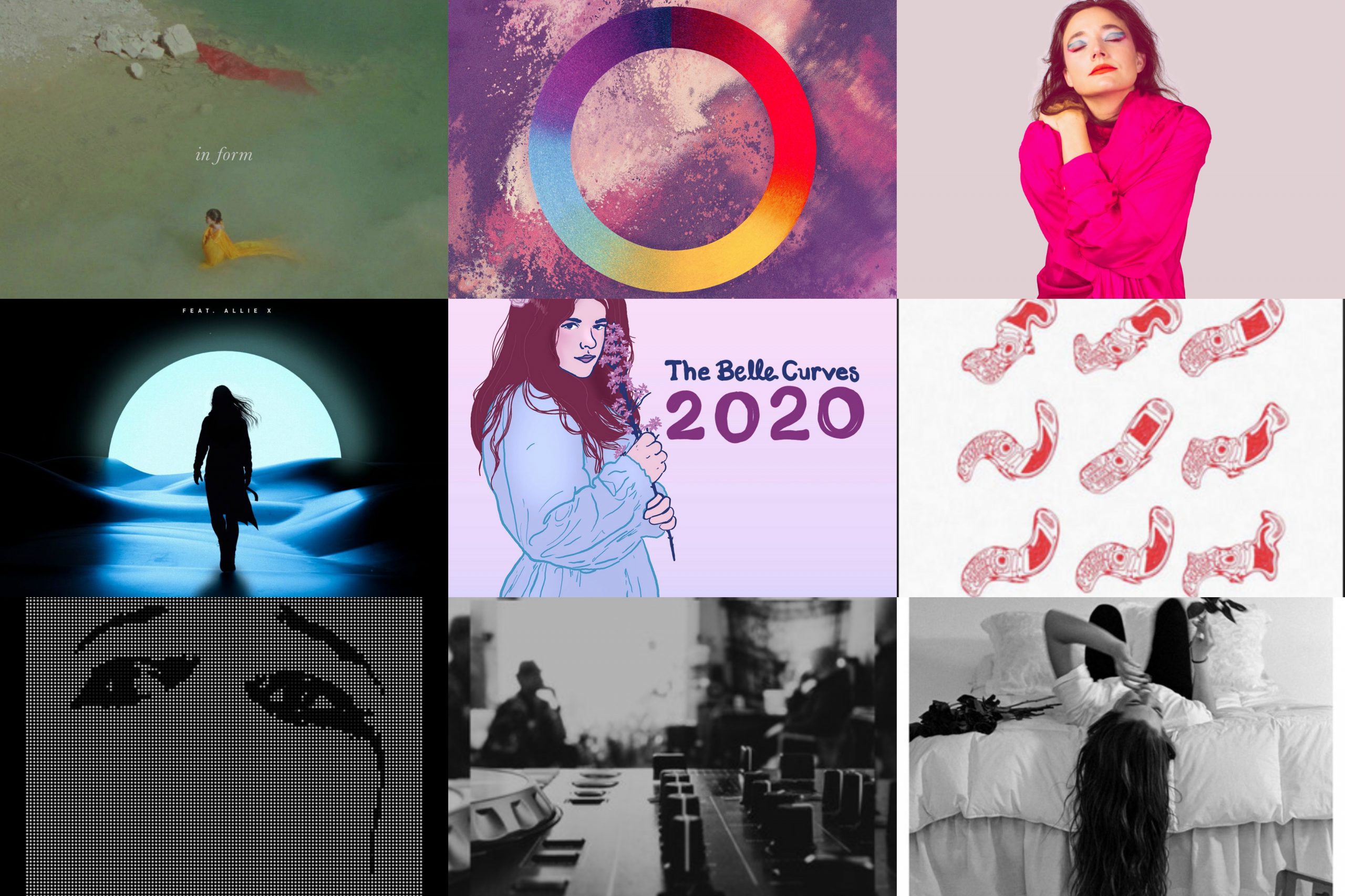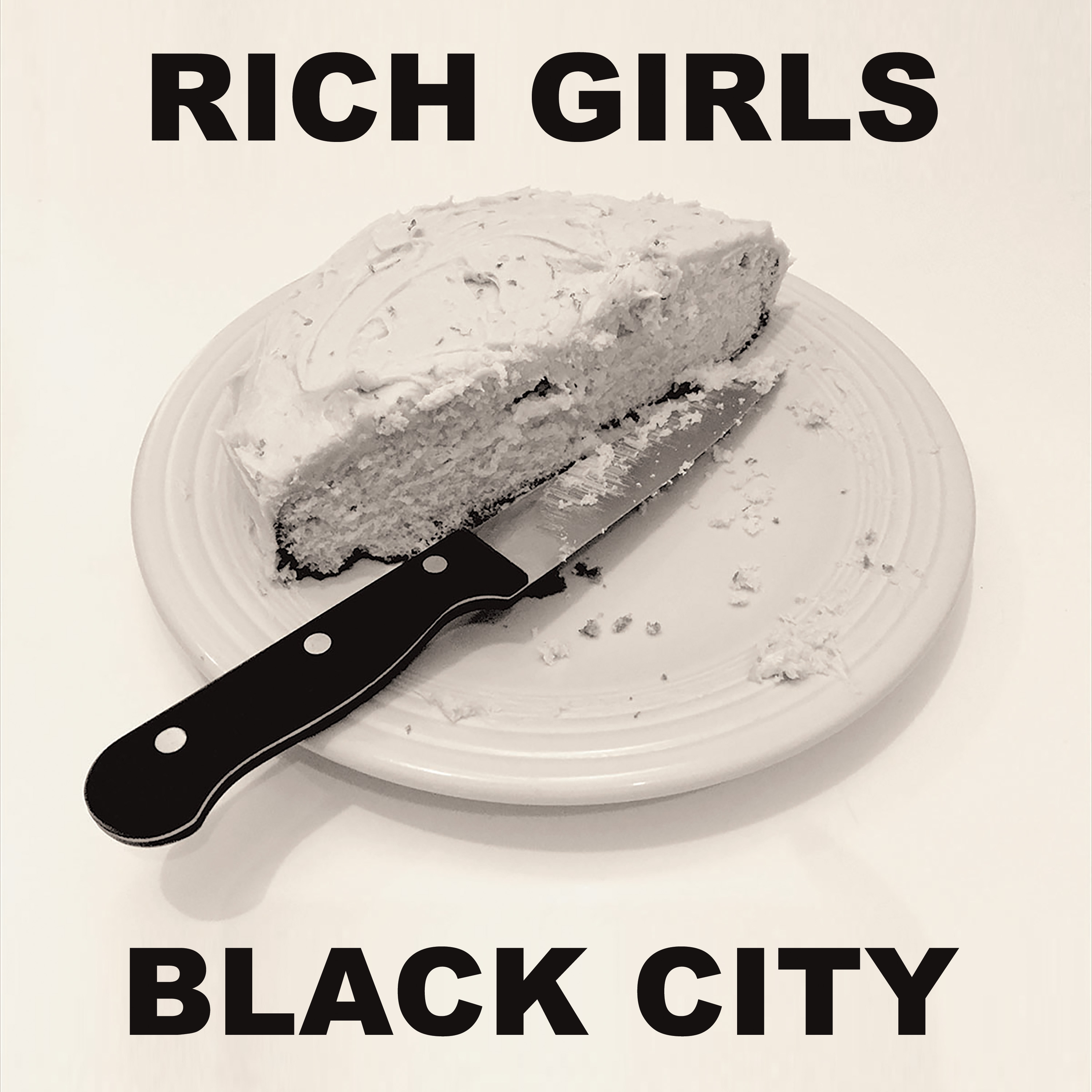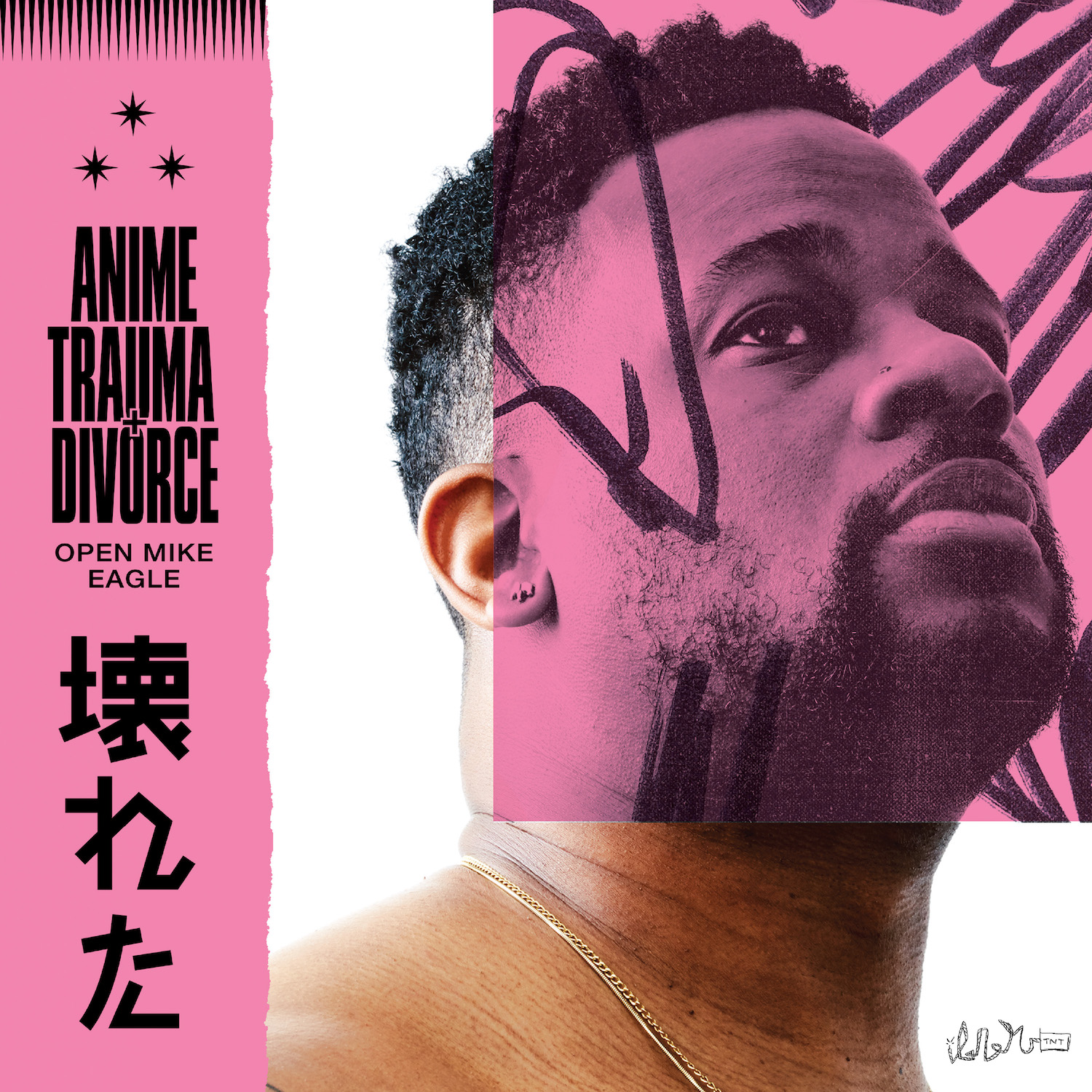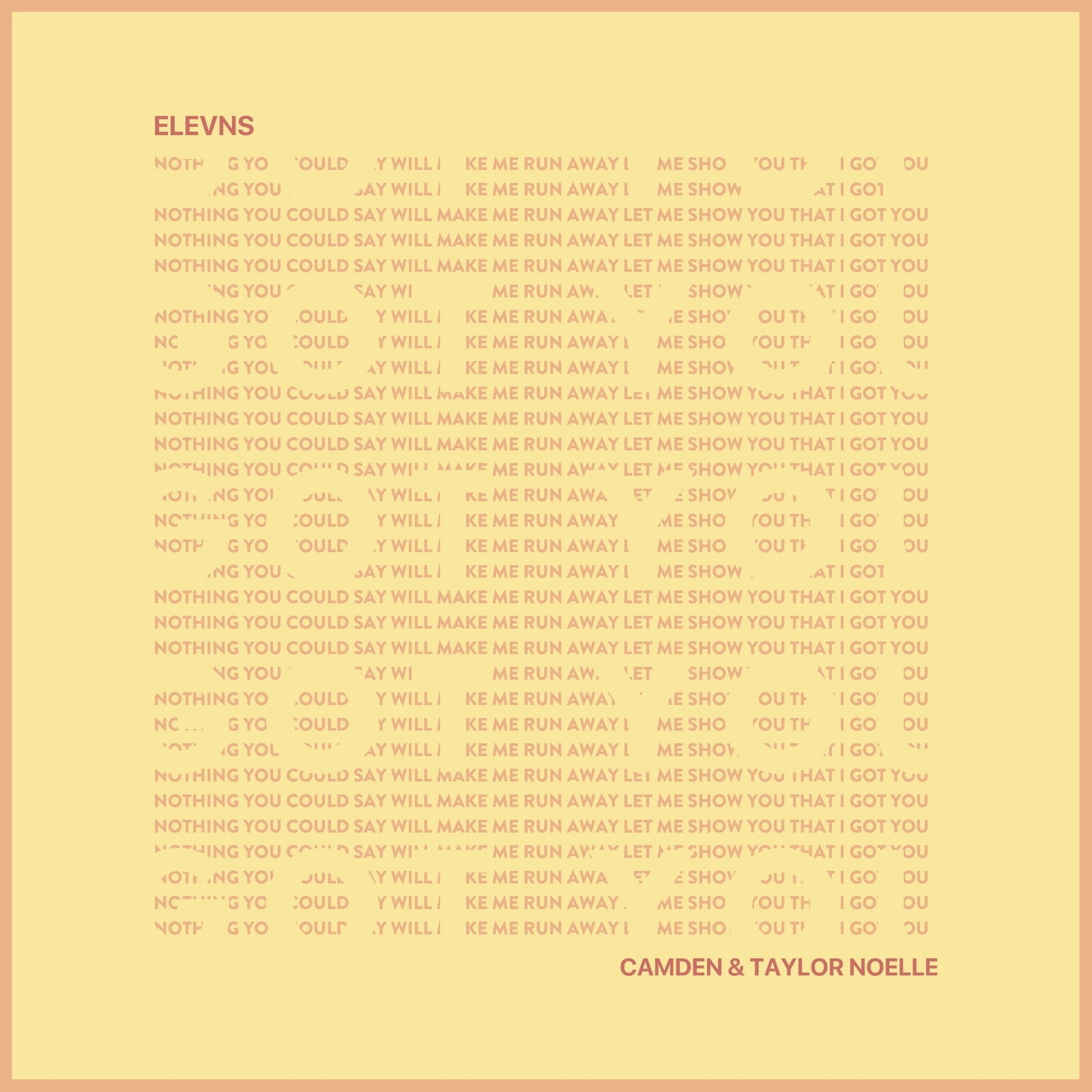Singer/songwriter jasmine.4.t delves into the bounds of creative solidarity, care, and healing leading up to her achingly intimate and enchantingly beautiful debut album, ‘You Are the Morning’ – a reconciliation of personal upheaval and a love letter to queer friendship.
Stream: ‘You Are the Morning’ – jasmine.4.t
There are so many people around the world crying out for solidarity. There’s so much power in reaching out, connecting with others, and showing up as that bright light we need.
* * *
It’s only February, but jasmine.4.t. has been fast on the rise this year.
Tied closely to legendary names like Phoebe Bridgers, Julien Baker and Lucy Dacus – the boygenius trio have themselves touched jasmine’s debut record, You Are the Morning (via Saddest Factory Records), which released in mid-January. And what a stellar way to start your recording journey.

jasmine.4.t. undoubtedly embarks on her musical journey, already on a high. But jasmine’s association to these artists is the least impressive thing about her music – I found myself incredibly touched by this record’s messaging and expressions. “The light still breaks through each morning” – this is the sentiment behind You Are the Morning, a reconciliation of personal upheaval and a love letter to queer friendship.
This album shimmers in its soft, yet authoritative productions, burgeoning instrumentals, and inexplicably arresting lyricisms. From expansive string arrangements in “High Field,” to wispy vocals in the record’s title track, and explosive guitar breaks – jasmine has created an infinitely sweeping experience that still holds intimacy and vulnerability as its strengths. That is its true power.
Whether it’s platforming those in the queer community (the Trans Chorus of Los Angeles features on closing track, “Woman”) or garnering support from an all-trans band while on tour, activism and performance are closely linked for jasmine. She puts forth, “Just giving a trans woman a microphone shouldn’t be taken lightly. I will use that opportunity to talk about the issues we face.”
During a conversation with Atwood Magazine, jasmine did not shy away from discussing the ways our society has caused pain, but neither did she shy away from the endless joys that exist in our world too. We settled on this: Honest existence is resistance, and what this record gives to our world is the vocabulary to talk about things that are equal parts beautiful, painful and affecting.
Read our interview below, and listen to jasmine.4.t’s debut album You Are the Morning wherever you access music!
— —
:: stream/purchase You Are the Morning here ::
:: connect with jasmine.4.t here ::
— —
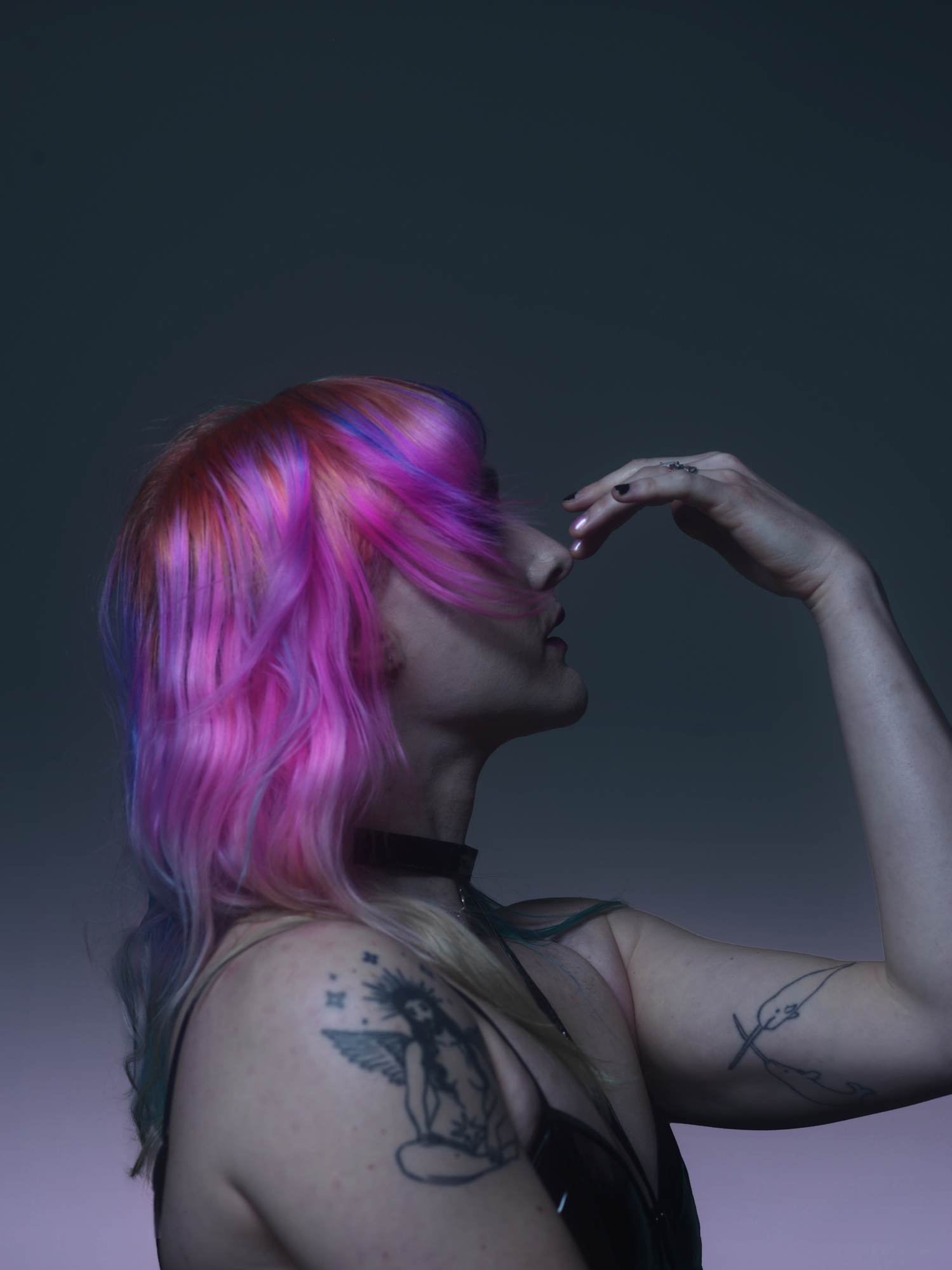
A CONVERSATION WITH JASMINE.4.T

TW: this interview discusses topics related to mental health struggles, trauma, self-harm, and home insecurity.
Atwood Magazine: Congratulations on such an amazing album! I love it so much, and I have so many questions to ask you. How has the release been for you so far?
jasmine.4.t: I mean, honestly, it’s beautiful and overwhelming. I’ve had so many incredible responses—not just from magazines and radio and stuff like that, but also from trans women and other marginalized people around the world. I got so many random DMs, and I think my favorites were from older trans women saying, ‘I wish I had someone like you to look up to when I was transitioning.’ That just meant so much. I love how this album has been received, especially during this shit show of a January.
It’s beautiful to get that feedback from your community.
jasmine.4.t: Yeah. I mean, with Trump signing these laws, I was doom scrolling yesterday about what they’re doing to trans women in prisons, and it’s just terrifying. It’s so terrifying. I’m honestly scared about going to America for South by Southwest. Like, me and my whole band are just kind of terrified. We’re not even allowed to use public bathrooms in North Carolina when we’re changing venues, so we’d just have to hold it.
I don’t like this word usually – but it’s all just very backward, what’s happening. It’s heartbreaking.
jasmine.4.t: It’s so backward – it feels like such a regression for everything that’s been achieved socially. And then over here in the UK, we’ve just had Wes Streeting, who’s in charge of healthcare, planning to ban trans children from using puberty blockers. Right after that, other countries followed the example, including Australia. It’s just so disheartening. I have a lot of trans followers in Australia, and some of them or their family members are directly affected by this.
But at the same time, so many people have reached out to say this music is really helping them feel seen and understood.
The record has really come at such a perfect time.
jasmine.4.t: In a way, I think we were fully aware of that when we were in the studio. Even since then, things have gotten worse, but 2023 was already such a shitshow for trans people. There were moments in the studio where we’d just stop and be like, ‘This feels like a moment in history.’ It was about filling this iconic space with trans people.
We were aware of the weight of what we were creating – almost like we were building this industry of our own, standing strong against this horrible, violent political backdrop.
It’s fantastic you’ve used your music to speak about these experiences, and you’ve said that activism in music is very important to you. Can you expand on that a bit more?
jasmine.4.t: I feel like I’m so tired and angry, you know? There’s such a big disconnect between the experiences of trans women. I’m a very privileged trans woman, but my experience is so different from that of a Black trans woman or a trans woman in a country where it’s illegal to be trans. Honestly, it feels like that in America right now too.
I think all trans women feel like we’ve lived close to death. We’ve seen violent death in our communities. Every year in November, on Trans Day of Remembrance, we recite the names of all the trans people we’ve lost to violence over the past year. This past November, it was 427 names—and that’s just the ones submitted to the Trans Lives website. So many more don’t make it onto that list, including members of my own trans community here in Manchester.
It’s terrifying. I’ve been a victim of street violence multiple times. You have to learn to run away and build mental resilience – things most people don’t have to deal with. I think because of all we’ve been through, many of us feel like we don’t have much to lose. And that’s why we have such strong solidarity with other oppressed groups.
We’ve seen trans people as part of the Free Palestine movement, trans people imprisoned for dismantling Israeli weapons factories. That kind of international solidarity is so beautiful. My chosen daughter is currently imprisoned—held on remand without trial for two years until her trial in September 2026 for allegedly taking part in dismantling an Israeli weapons factory in the UK.
Over the past year, I’ve seen so much solidarity between all kinds of groups. I think trans and queer people have this immense capacity for solidarity and to change the world around them – because we’ve already changed ourselves. We’ve learned to exist in a world that doesn’t want us to.
For me, it’s not about going out and trying to be an activist or anything like that. I just want to stand in solidarity with other groups. If I hear people crying out for help, I want to help them. That’s all.
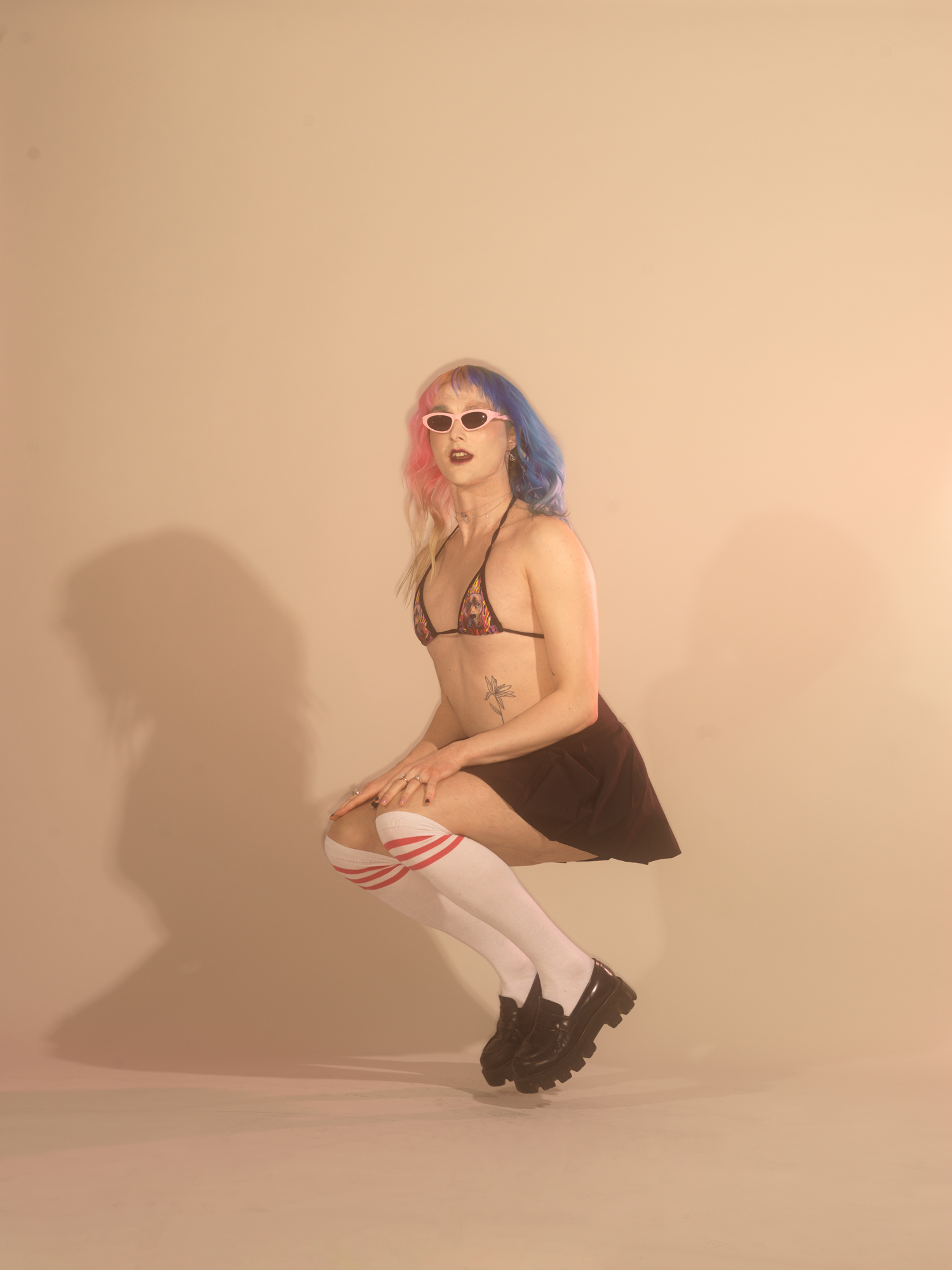
I mean, the very existence of queer space dismantles everything the state has told us about society, which is why it’s become so dangerous for people to exist within these spaces.
jasmine.4.t: We’re proof against the patriarchy, right? And against capitalism, masculinity, and all the oppressive systems handed down to us. That’s dangerous to those in power—absolutely. And they can’t stand it, which is why they’re killing us. It’s so insidious and disgusting, the way they’re trying to patch it over with different narratives.
And it’s not just happening to trans people. This has happened to Black people throughout U.S. history, especially with mass incarceration over the last century. What’s happening to trans people now feels like an expansion of that – these laws saying we can’t use bathrooms or participate in public life. They’re just trying to find ways to shut us away, demoralize us, and keep us terrified. They want to keep us out of public life and positions of power.
Do you feel like music has been a safe space for you?
jasmine.4.t: Maybe the music industry is more aware of the correct language or vocabulary now, but in terms of physical safety, I don’t think it’s that much more or less safe than anywhere else in the world. That said, indie venues often do a really good job of being aware of the violence trans people face. I’ve had situations where venue staff have stepped in to protect me, which is great.
But like the rest of the world, the music industry is still very male-dominated, and that’s at all levels – local and global. It’s a big problem, but it’s also just a reflection of the world as a whole.
Is there anything you wish there were more of in the industry?
jasmine.4.t: Definitely more equity. There’s so much financial gatekeeping. As an anti-capitalist, I’m not saying we should just move money around, but the financial structure is a huge barrier. It’s especially hard for working-class musicians. You basically need financial backing from your parents to even get started. When I was opening for Lucy Dacus early in my career, it was incredibly difficult without opening for bigger bands. And you can’t really do that without financial support from somewhere.
I’d love to see a system where talented artists – especially trans artists – get more recognition. But it goes beyond that. There are so many incredible, marginalized musicians who don’t get the attention they deserve. That’s what I’d love to see change.
I have to ask. The boygenius trio, what was it like working with them?
jasmine.4.t: I was supposed to release the album on a certain day and had even organized a show, but things just kept falling through. Around that time, my friend Joe Sharon – who I grew up with in Bristol – was like, ‘You’ve got so many songs here.’ Joe’s one of those people who deserves way more recognition, to be honest. He’s an incredible songwriter. His solo project is under the name SLONK, and he’s currently playing in this incredible punk band called MOULD. They’re amazing—definitely worth checking out. They’re starting to get some recognition, but not enough. Every time I see them, I’m like, ‘This is the best band ever.’
Joe suggested I submit my demos to Phoebe Bridgers and Lucy Dacus. He was like, ‘Why not? Take a punt.’ So I did – I submitted them through the Saddest Factory website. I didn’t hear anything back for a while, so I poked Lucy and asked if she could pass the demos along to Phoebe. Lucy did, which was amazing. And then Phoebe immediately called up her manager like, ‘Can we sign Jas? This is amazing.’
Next thing I knew, I was opening for boygenius when they came to the UK. The very next day, I signed with Saddest Factory Records. After that, me and the girls were flown out to LA to record the album, which was nuts.
My gosh, that is the dreamiest thing ever!
jasmine.4.t: It felt like such a dream, honestly. I was in a really dark place at the time, in a shaky housing situation. It wasn’t as bad as it had been – I’d been homeless for a bit before that – but I was living somewhere where I wasn’t on the lease or anything, so it was a bit precarious.
I was still so traumatized from everything I’d gone through after coming out. I was hallucinating and delusional, constantly stuck in this idea that I had died. I thought I’d died back in Bristol after coming out to my landlord. I’d thought about killing myself, and I believed I’d gone through with it and was now living in some kind of afterlife.
Even now, sometimes I wonder, ‘Am I just imagining all of this? Am I still stuck in that room where I wrote these songs, imagining some wild future where I’m signed to Phoebe Bridgers’ label and releasing an album that’s met with critical acclaim?’ But no, apparently this is all real. So yeah, I’m going along with it for now.
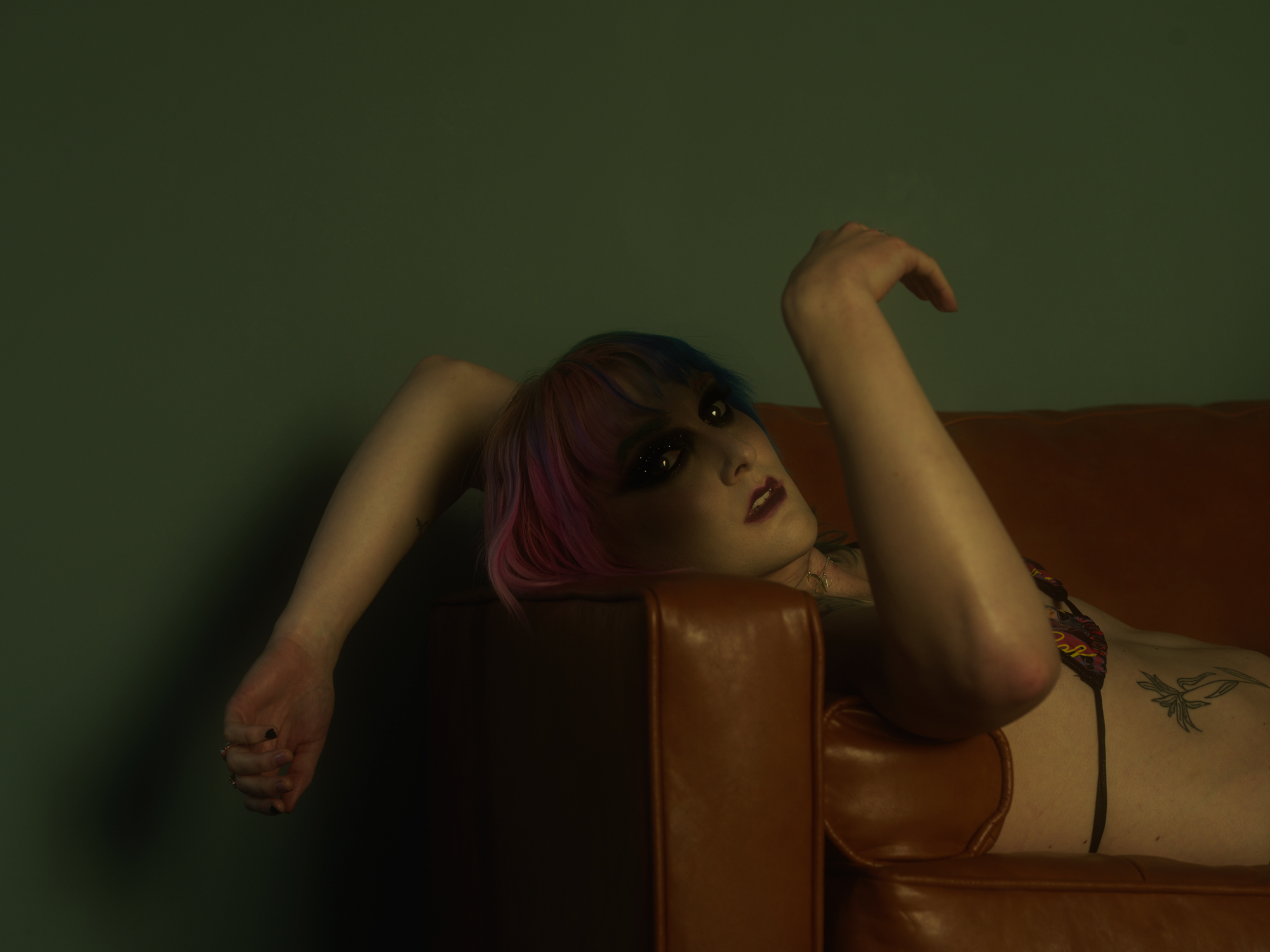
Thank you so much for sharing that. It’s all very real, and you truly deserve all of your success. I also wanted to ask about “Guy Fawkes Tesco Dissociation.”
jasmine.4.t: Yeah! So I was staying on my best friend’s floor in Manchester – she was one of the reasons I moved there from Bristol after my marriage ended. It was Guy Fawkes Night, the night with all the fireworks, and I was really getting triggered by the loud bangs. I thought, maybe if I took her outside to see the fireworks, it would help. But as we were walking back along the main road, someone set off a firework right outside a restaurant—it didn’t even take off, it just exploded in the street next to us. I blacked out at that point, and I don’t remember anything until I tripped over her doormat as we came back into her house.
I was like, ‘What just happened?’ and she said, ‘That was a firework—we went to the supermarket, but I don’t think you were doing that good.’ I was like, ‘Oh shit.’
I was doing therapy at the time – EMDR (Eye Movement Desensitization and Reprocessing) – which helped me so much. Honestly, I haven’t had any PTSD symptoms since, and it’s been about a year now. I’m doing so much better. Not perfect, but much better.
The song is about reprocessing that experience through EMDR therapy. When I recorded it, I wanted to mirror the bilateral stimulation from the therapy, so I recorded the vocals with one on each side of the stereo field, each singing a line. When we went into the studio with Phoebe, I asked if she wanted to do the second voice, and she was all for it. So that’s what you hear—a duet, but with a lot of symbolism, bouncing left and right between the two voices.
How does the album feel to you now when you talk about it, and listen to it?
jasmine.4.t: I don’t necessarily feel like I’m going back to that place when I sing these songs, but I still feel those emotions. Every time I perform them, I remember those feelings. But I also feel like I’ve applied the lessons I learned from those experiences to whatever I’m going through now.
With Guy Fawkes Night, it’s almost like I’m singing about healing from that dark place I was in. When we recorded it, we really captured this manic energy in the studio—it was a mix of sleep deprivation and that manic feeling I had from the delusions I was experiencing. But there was also hope in the air because I was already starting to see the light at the end of the tunnel through my therapy.
When I listen back to the recording now, it feels like it’s done in this bright, hopeful future where I’m healed, in a community, and by some measure, successful. It’s a reminder for me and for listeners that, despite everything, I survived. Even though the song is about such a dark topic – suicide in a supermarket – it’s performed in this almost joyful way, like, ‘Hey, I made it through.
So it’s very much about healing.
jasmine.4.t: Yeah, the record is really about healing, and I think people can see that, especially during the live shows. I feel like I’m such a different person now compared to when I wrote these songs. I know I’m sad right now, but generally, I’m as happy as I’ve ever been in my life. And I think that’s visible to the audience. It’s nice to be able to say, ‘Don’t worry, you’ll get through this.’
I’ve had so many incredible trans women and just random queer folks come up to me during these shows, especially during the week the album came out. They’ve told me how much these songs resonated with them, how they felt like the songs captured something they’ve never been able to put into words before. It’s such a beautiful feeling, knowing that I’ve helped them come to terms with their own transness.
It’s amazing to feel like my music has this power to help others, to show them they’re not alone. And I don’t think these songs are static in their meaning. They evolve with me and with the listener, and that’s something really special.
Do you have any favorite songs on the record? I have two: I like “You Are the Morning,” of course, and “Best Friend's House.” The latter I think just means so much, it’s so moving yet so simple, it genuinely brought me to tears.
jasmine.4.t: Thank you so much! Yeah, I don’t know, I’m proud of all my songs. I don’t feel like I could impose a hierarchy on my children. But there are definitely some moments I’m really proud of. “Kitchen” is one of them. It’s just a really nicely crafted song, and I love the guitar part – I spent a while getting that part right, so I think it’s neat.
Also, “Elephant” is another one I’m proud of, because it’s hard to write a song that doesn’t have a chorus, you know? It’s just the same melody and chords the whole way through, and I think it was a bit brave to do that. It was also fun to write and sing—it just felt good to do, and ultimately, that’s what writing songs is about, right? Chasing that feeling of ‘oh, this feels right.’ I think I really nailed that one.
Then “Best Friend’s House,” I wrote in like a second. Honestly, I don’t even think of it as a ‘good song’ in the traditional sense, but it captures something real, and it does that well. It’s raw – it’s exactly how I sang it into my voice note when I wrote it. It wasn’t crafted or edited; it just is what it is. And there’s something beautiful about that. I think when I think about it, it’s not necessarily about one person. I think it’s about it’s just about the feeling really. Family, community.
I don’t think these songs are static in their meaning. They evolve with me and with the listener, and that’s something really special.
I have a few last questions. How would you say that this album has helped you to grow as an artist or a musician more generally?
jasmine.4.t: I think releasing the album has given me a lot of faith in myself. It’s kind of wild, right? Getting up on stage and singing for people—why would you do that? But I think the fact that people seem to want me to do it has made me feel more confident in my own way of approaching music. I just do my thing, and if people like it, that’s cool. It’s about having confidence in myself and appreciating my own songs, even the ones I thought might not be worth sharing. Looking back, I’m like, ‘No, these are actually pretty great.’ They’re raw, authentic, and they capture a moment, just like “Best Friend’s House”.
Writing after putting out something can be a little scary because you feel like it has to match up, but I remind myself that I just need to write about what I’m going through right now. Living through all the hardships means there’s always something to write about. Coming out, for example, made me so much more prolific because I wasn’t repressing myself anymore. I feel more able to express myself in a way I couldn’t before.
I’ve got so much material, so much unfinished stuff in my head – about 15 songs that I need to get down before they disappear. I’ve been super busy with the album release, so I haven’t had a chance to capture it all yet, but I’m really excited to get it out there.
One song in particular, “Did You Know?”, is something I’ve been wanting to release for a while. We play it at the end of every live show, and the audience really connects with it. It’s heavy, though – it’s about the end of my third trans femme relationship. But I feel ready to put it out soon. So, yeah, I’m just really excited to keep creating, keep doing the work, and putting more music out there. This album release has really given me confidence and enthusiasm for what’s next.
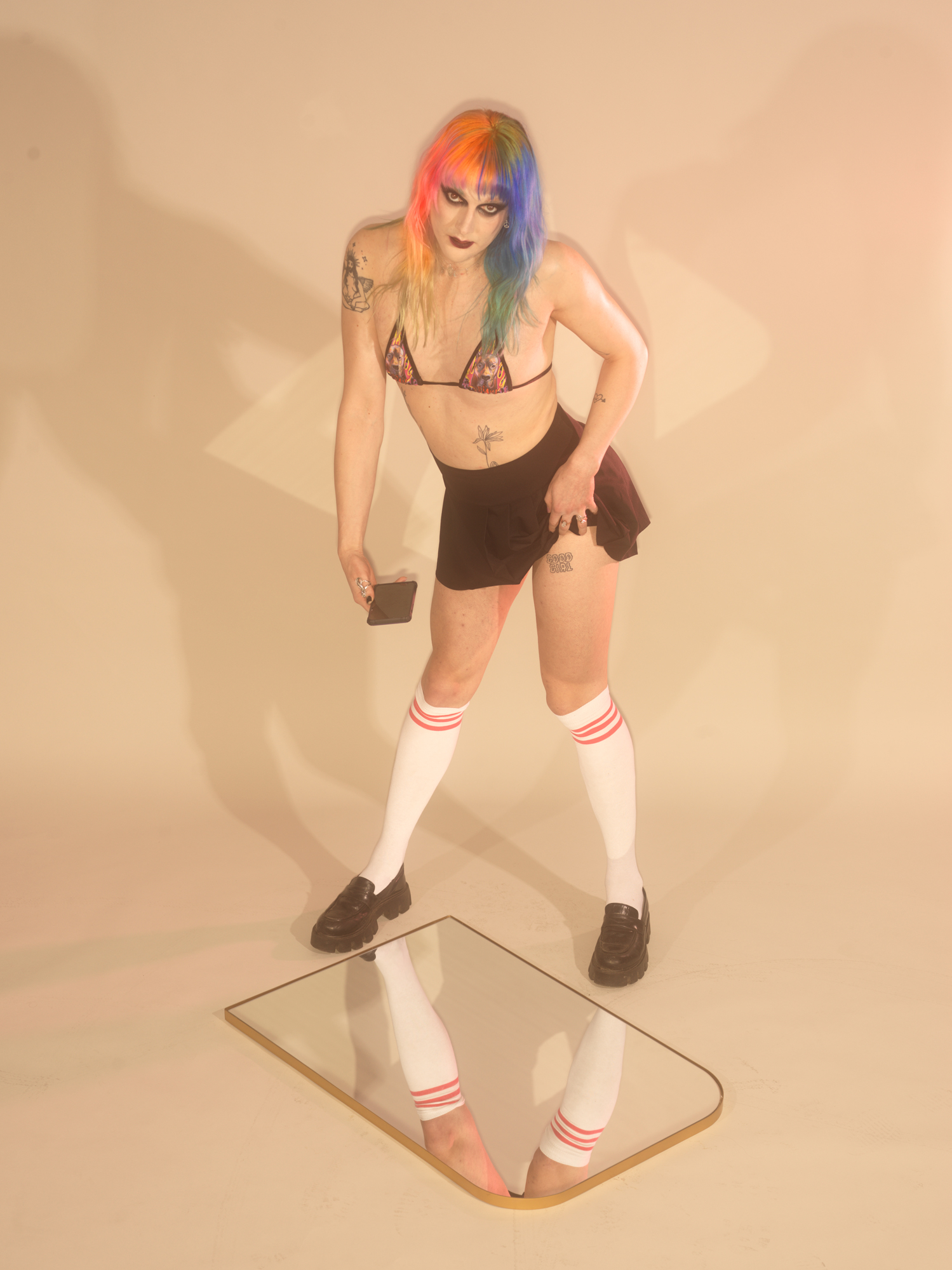
Ultimately, I want this message to be one of solidarity – take it into your community, extend your reach, and be the support others need.
What does this record symbolize to you in the trajectory of your career?
jasmine.4.t: It’s massive, honestly. I feel like this is everyone’s dream, right? To have an album produced by three people, each of whom has won at least three Grammys. It’s just incredible. I really feel like nothing else matters after this. This is such a huge milestone, and I’m so proud of it. The level of recognition I’m receiving is something I never even dreamed of, so it really represents a huge achievement for me. I’m genuinely really happy.
And what do you hope listeners will take away from the record?
jasmine.4.t: There are so many people around the world crying out for solidarity. There’s so much power in reaching out, connecting with others, and showing up as that bright light we need. There’s so much work to be done, and so many people struggling right now – people trying to escape dangerous situations in their countries, people without homes, and those who are just trying to survive. Keeping those people in your thoughts and doing whatever you can to help is so important.
There are so many incredible mutual aid organizations doing this work, like Trans Mutual Aid Manchester, here in the city. I really encourage anyone to donate generously. They’ve changed so many lives here, supporting trans people who are dealing with housing insecurity, homelessness, or food scarcity. Ultimately, I want this message to be one of solidarity – take it into your community, extend your reach, and be the support others need.
— —
:: stream/purchase You Are the Morning here ::
:: connect with jasmine.4.t here ::
— —
“You Are the Morning” – jasmine.4.t
— — — —

Connect to jasmine.4.t on
Facebook, TikTok, Instagram
Discover new music on Atwood Magazine
© Matt Grubb
:: Stream jasmine.4.t ::

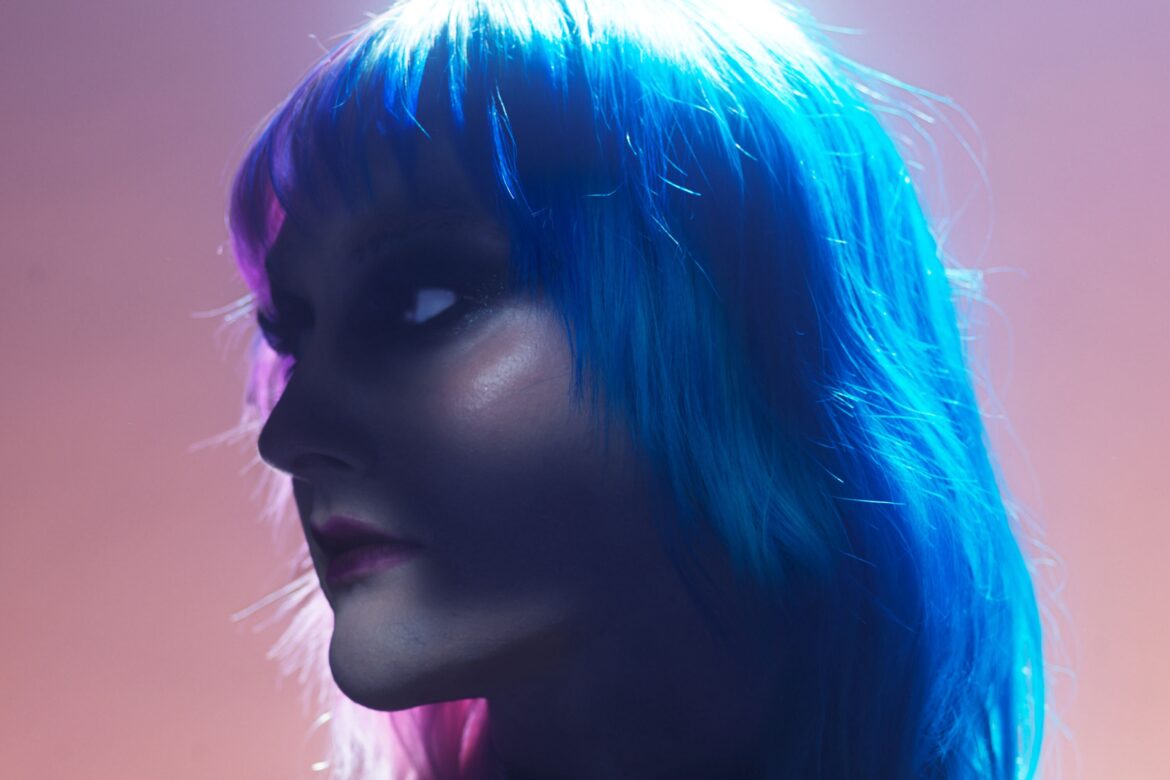
 © Matt Grubb
© Matt Grubb